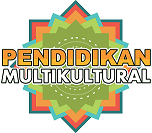Paradigm of Multicultural Islamic Education Sociological Perspective
DOI:
https://doi.org/10.33474/multikultural.v7i1.19928Keywords:
multicultural, education, paradigm, reseachAbstract
The current era is multicultural education, and more specifically Islamic multicultural education. Complexity, rapid social change, the era of information technology in the midst of plurality and multiculturality of Indonesian society, so multicultural education becomes very important and relevant. Therefore, prioritizing education in this style becomes an obligation for the Ministry of Education and the Ministry of Religion and higher education institutions in Indonesia. In the framework of enriching studies and also implementing multicultural education, paradigmatic thinking is needed. From a sociological perspective, there are several paradigms, such as the social fact paradigm of multicultural education, the social definition paradigm of multicultural education and the social behavior paradigm of multicultural education. From this paradigm, research and studies can certainly be carried out to develop theories and praxis of multicultural Islamic education.
References
Abu Nimer, Mohamad. 2010. Nonviolence and Peace Building in Islam, Theory and Practice.
Jakarta: Alphabet cooperates with the Paramadina Wakaf Foundation.
Arifin Bey, Beyond Civilizational Dialogue, A Multicultural Symbiosis in the Services of
World Politics, (Jakarta: Paramadina in Cooperation with The Japan Foundation, 2002).
Banks, James A, Cheery A. 2010. Multicultural Education Issues and Perspectives.USA:
John Willey and Sons.
Banks, James A. 2006. Race, Culture, and Education, The Selected works of James A.
Banks. London and New York: Routlegde.
Banks, James A. 2009. The Routldge International Companion to Multicultural Education.
London and New York: Routledge.
Ministry of Religion, 2007. The Qur'an and its Translation. Solo: Triad of Independent
Libraries, 2007.
Fatimah, “Religious Harmony in the Qur'an: Epistemological Problems” in the Istiqra
Journal, Volume 04, Number 01. 2005, May, Stephen.
Critical Multiculturalism, Rethinking Multicultural and Antiracist Education. London:
Falmer Press.
Fatimah, 2005. "Religious Harmony in the Qur'an: Epistemological Problems" in the
Istiqra Journal, Volume 04, Number 01.
Riyanto, E. Armada. 2010. Interreligious Dialogue, Historicity, Thesis, Struggle, Faces,
Yogyakarta: Kanisius.
Rizal Panggabean and Ihsan Ali Fauzi, “From War Research to Peace Building Research:
Appreciating Abu Nimer's Contribution in Mohammad Abu Nimer, Nonviolence and Peace Building in Islam, Theory and Practice, (Jakarta: Alphabet in collaboration with the Wakaf Paramadina Foundation,
, Parekh, Monk. 2008. Parekh, Rethinking Multiculturalism, Cultural Diversity and
Political Theory. Yogyakarta: Kanisius.
Rizer, George. 1985. Sociology, Dual Paradigm Science. Jakarta: Rajawali Press.
Spraedly, James P., Ethnographic Research, (Solo: Tiara Wacana, 1997).
State Secretariat, 2012, Law No. 12 of 2012 concerning Higher Education.
State Secretariat. 2003. Law no. 20 of 2003 concerning the National Education System
Syam, Nur. Twin Towers, Development Direction of Multidisciplinary Islamic Studies,
(Surabaya; Sunan Ampel Press, 2010).
Syam, Nur. 2018. Religious Studies As A Method To Build Harmony: The Case of Higher
Education under the Ministry of Religious Affairs. Paper presented in the International Conference on Innovation Religious Education and Buddhism (ICIREB) at Smaratungga University, Boyolali, Center of Java.
Syam, Nur. 2008. Social Theory Analysis Model. Surabaya: PNM.
Syam, Nur. 2008. Challenges of Indonesian Multiculturalism: From Radicalism to
Nationality. Yogyakarta: Kanisius.
Syam, Nur. 2014. From the Bureaucratic Room. Jakarta.
Downloads
Published
Issue
Section
License
Jurnal PENDIDIKAN MULTIKULTURAL yang diterbitkan oleh Doktor PAI Multikultural Program Pascasarjana Universitas Islam Malang menerapkan ketentuan Hak Cipta dan Lisensi dibawah Creative Commons Attribution 4.0 International License.

This work is licensed under a Creative Commons Attribution 4.0 International License.


.png)


_-_Copy1.jpg)







